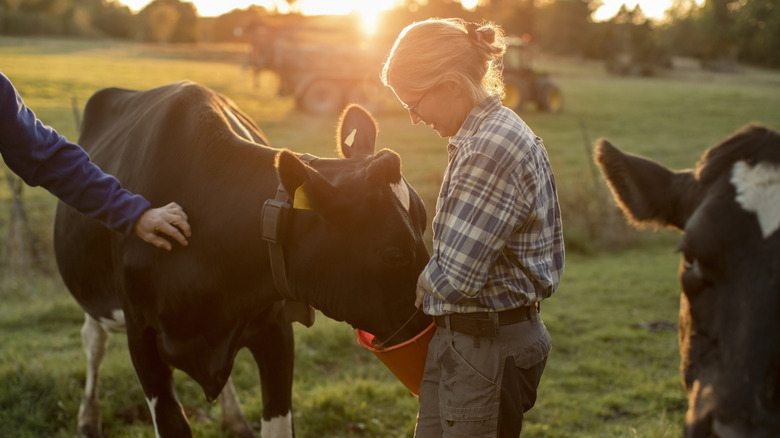American Farmers Can Expect A Big Tax Break From The IRS
Thanks to challenges like unpredictable weather conditions and mounting financial pressures like debt and high production costs, many American farmers and ranchers have had to make the difficult decision to sell their livestock. This almost certainly impacts the average income of American farmers, but an unexpected announcement from the IRS is offering them a significant financial lifeline. It is not uncommon for farmers and ranchers to sell off their livestock during droughts to lower their production costs. The IRS even provides farmers a two-year window to replace their livestock and avoid capital gains taxes, but with the severe drought in many states and territories, some producers were forced to sell sooner than expected and created taxable income.
Under the new guidance, the replacement window has been doubled to four years, giving producers more breathing room to rebuild their herds and recover financially before facing a tax bill. Without the extension, farmers and ranchers who had to sell or trade livestock early would have to either repurchase animals quickly to meet the standard two-year window or pay the hefty capital gains tax. By stretching the deadline, the IRS is allowing qualifying livestock owners to wait for conditions to improve and markets to stabilize before rebuilding their herds.
Who qualifies for the relief?
Since extreme drought has affected much of the country over the past few years, this announcement from the IRS applies to farmers and ranchers in nearly every state. According to the agency, producers in 49 states, the District of Columbia, and Puerto Rico are eligible if their county was listed as suffering from exceptional, extreme, or severe drought by the National Drought Mitigation Center.
To qualify, affected parties must have sold or traded livestock intended for breeding, dairy, or draft purposes rather than for slaughter, sport, or poultry production. So, this relief effort might not explain skyrocketing egg prices, but it should aid in situations where farmers and ranchers had little choice but to downsize their herds in response to drought-related complications. By deferring capital gains taxes, the IRS gives affected farmers and ranchers more time to recover their operations without taking a big financial hit during tax season. Qualifying people in areas where drought continues may also be granted further extensions beyond the new four-year window, according to the IRS. Additionally, farmers may further lower their tax bill by taking advantage of important tax breaks you need to know.

